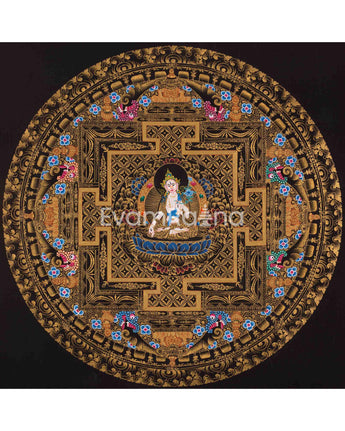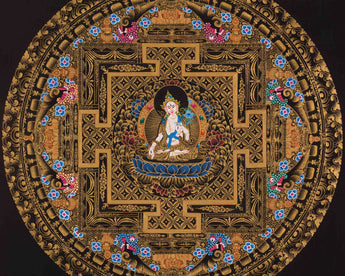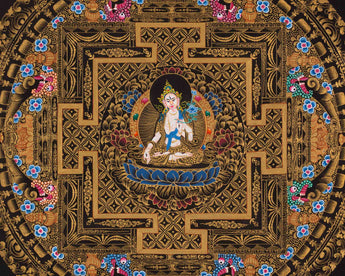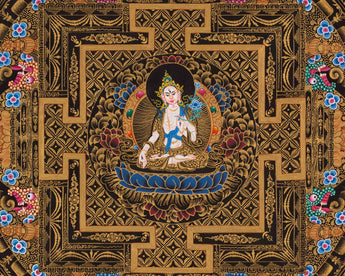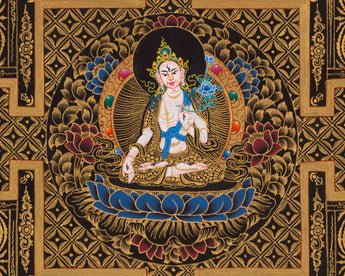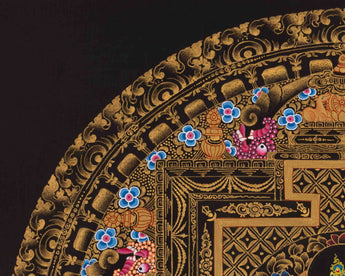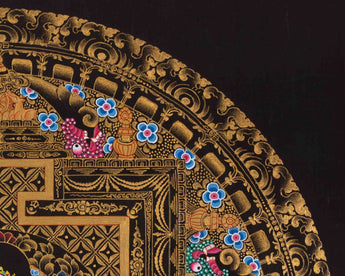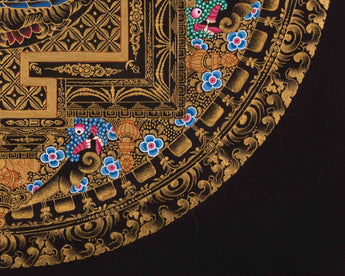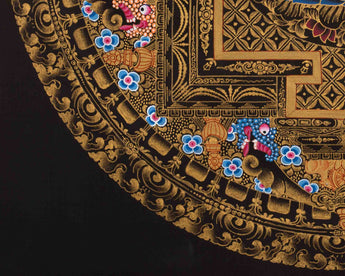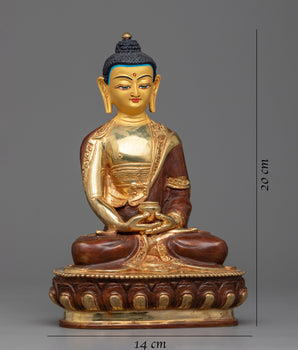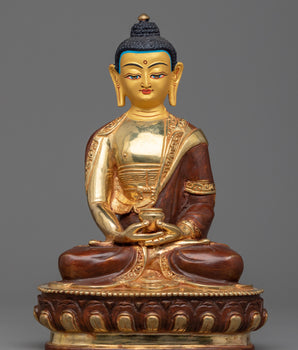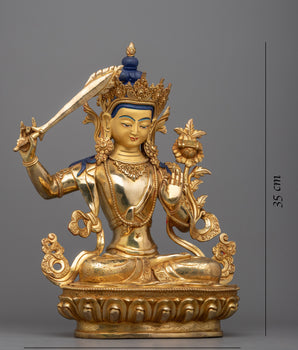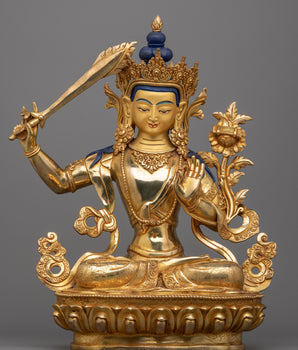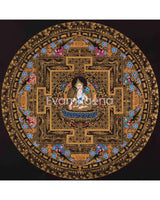
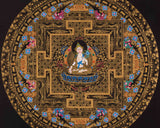
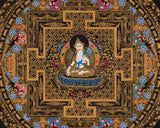
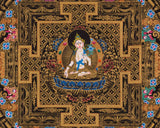
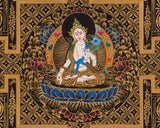
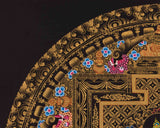
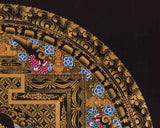
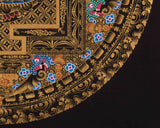
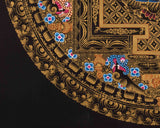
Original Hand Pained White Tara Mandala Thangka

100% AUTHENTIC

HANDPAINTED

FREE SHIPPING
Original Hand Pained White Tara Mandala Thangka Painting
About Our Thangka
A mandala is a tool for meditation or a contemplative object used to illustrate various aspects of Buddha’s teachings, meditative instruction, or the cosmological representation of the pure microcosm (pure mandala) of the deity.
The White Tara or “White Saioress” is said to have been born from a tear of the Bodhisattva of compassion. She holds a very prominent position in Tibet.
Here White Tara is seen seated on a lotus throne.Her body is white and she is seated in the vajra posture. Her left hand, which is placed on her heart, holds the stem of a blossoming lotus beside her left shoulder.Her right hand is in Varadamudra, symbolizing supreme generosity.She is wearing all six ornaments and looks like a beautiful sixteen-year-old maiden. She has seven eyes, two in the palms of her hand, two in the soles of her feet, and one on her forehead.
How does Thangka benefit us?
Every detail of a painting has a symbolic meaning. Regardless of your religious affiliation, a thangka can help you on your path to enlightenment, whether you practice Buddhism or have other religious convictions. Thangkas are paintings that depict deities with various iconographic elements and symbolism that encourage meditation on the teachings of the god they depict. Any thangka is intended to aid in the removal of the film of ignorance, which is a significant barrier to the road to enlightenment. The Thangka is revered as a holy item. They promote positivity, spread Buddhism's teachings, bring about peace, harmony, and oneness, and dispel any negative energy that may be there.
------------------------------------------------------------------
Size: 9"/23 cm (width) x 9"/23 cm (height)
Materials: Cotton Canvas, Acrylic Colors, Genuine 24K Gold
------------------------------------------------------------------
THIS THANGKA IS HAND-PAINTED IN THE TRADITIONAL STYLE AND THE QUALITY IS HIGH
How to take care of your thangka?
-Hang your thangka in a traditional silk brocade
-Regular Inspection of your thangka; examine the borders and all attachments.
-Keep thangkas covered when they are on display but not in use.
-Rotate thangkas between display and storage on a regular basis, two to four times a year, to reduce the amount of exposure to light. Keep away from sunlight and humidity.
-Do not apply liquids or other materials to the surface of the thangka.
How to Take Care of Your Thangka?
- Hang your thangka in a traditional silk brocade.
- Regularly inspect your thangka; examine the borders and all attachments.
- Keep thangkas covered when they are on display but not in use.
- Rotate thangkas between display and storage two to four times a year to reduce exposure to light. Keep them away from sunlight and humidity.
- Do not apply liquids or other materials to the surface of the thangka.


